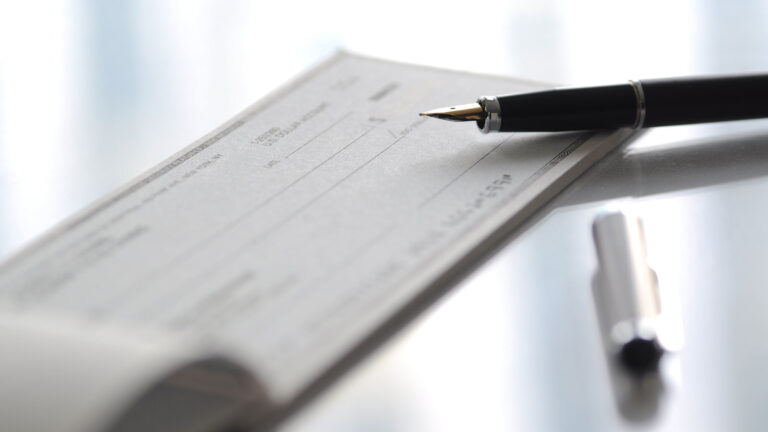Overpayment scams are a form of fraud in which a scammer sends a fake check or payment to a victim for an amount greater than the agreed-upon price for a good or service. The scammer then requests that the victim return the excess funds, usually through a wire transfer or another hard-to-trace method. By the time the victim realizes the initial payment was fraudulent, the scammer has already received the “overpayment” and is difficult to track down.
Types of Overpayment Scams
- Online Marketplace Scams: These scams usually occur when selling items through online platforms like eBay, Craigslist, or Facebook Marketplace. The scammer pretends to be a buyer and sends a check or payment for an amount higher than the agreed-upon price, then asks the seller to return the difference.
- Rental Scams: Scammers pose as prospective tenants and send a check or payment for more than the rent amount. They then ask the landlord to return the excess funds, often claiming it was a mistake.
- Work-from-Home Scams: Scammers may offer a job opportunity and send an “advance” payment, asking the victim to use the funds to purchase equipment or supplies. They then request the victim to return any leftover funds.
- Fake Lottery or Sweepstakes Scams: The scammer informs the victim that they’ve won a large sum of money but must first pay taxes or fees. The scammer sends a check to cover these costs and asks the victim to send the excess funds back.
Onother Types Of Overpayment Scams
Overpayment scams are a type of fraud where scammers trick victims into sending them money, usually by using a fake check or money order. Here are ten types of overpayment scams to be aware of:
- Fake Check Scam: The scammer sends the victim a fake check for more than the amount owed. They then ask the victim to deposit the check and send the excess amount back to them. The check will eventually bounce, and the victim will be responsible for the money they sent to the scammer.
- Craigslist Scam: The scammer responds to a Craigslist ad and offers to pay more than the asking price. They send the victim a fake check and ask for the excess amount to be sent back to them.
- eBay Scam: The scammer buys an item on eBay and sends the victim a fake check for more than the purchase price. They ask the victim to deposit the check and send the excess amount back to them.
- Employment Scam: The scammer offers the victim a job and sends them a check for more than their salary. They ask the victim to deposit the check and send the excess amount back to them.
- Romance Scam: The scammer pretends to be interested in a romantic relationship with the victim and sends them a fake check for various reasons, such as to buy a plane ticket to visit them. They then ask the victim to send the excess amount back to them.
- Online Purchase Scam: The scammer offers to buy an item from the victim and sends them a fake check for more than the purchase price. They ask the victim to deposit the check and send the excess amount back to them.
- Charity Scam: The scammer pretends to be a representative of a charity and sends the victim a fake check for a donation. They ask the victim to deposit the check and send back the excess amount to cover administrative fees.
- Secret Shopper Scam: The scammer offers the victim a job as a secret shopper and sends them a fake check for more than their salary. They ask the victim to deposit the check and send the excess amount back to them.
It’s important to be wary of these types of scams and never send money to someone you don’t know or trust. Always verify the legitimacy of any checks or money orders before depositing them, and report any suspicious activity to the authorities.
Prevention Tips
- Verify the buyer or sender: Before accepting any payment, make sure to verify the authenticity of the buyer or sender. Be cautious of buyers who are overly eager to complete a transaction or who insist on using untraceable payment methods.
- Don’t accept overpayments: If someone sends you a payment for more than the agreed-upon amount, don’t accept it. Return the payment and ask the sender to send the correct amount.
- Wait for payment to clear: Before sending any funds back to the sender or shipping any items, wait for the payment to clear with your bank. Be aware that even if a check appears to clear, it can still be discovered as fraudulent later on.
- Use secure payment methods: When possible, use secure payment methods like PayPal or credit cards that offer buyer and seller protection.
- Be cautious with personal information: Don’t provide any personal or financial information unless you’re sure the transaction is legitimate.
Reporting Overpayment Scams
If you believe you’ve been a victim of an overpayment scam, take these steps:
- Contact your bank: If you’ve deposited a fraudulent check or transferred funds, contact your bank immediately to report the incident and ask for assistance.
- Report the scam to the platform: If the scam took place on an online marketplace or classifieds website, report the incident to the platform so they can take appropriate action.
- File a report with law enforcement: Contact your local police department to file a report. While it may be difficult to recover your funds, reporting the scam can help prevent others from falling victim to similar schemes.
- Report to government agencies: In the United States, report the scam to the Federal Trade Commission (FTC) at ReportFraud.ftc.gov. In other countries, report to the appropriate agency responsible for consumer protection.
By being vigilant and taking appropriate precautions, you can protect yourself from overpayment scams and avoid becoming a victim of this type of fraud.

